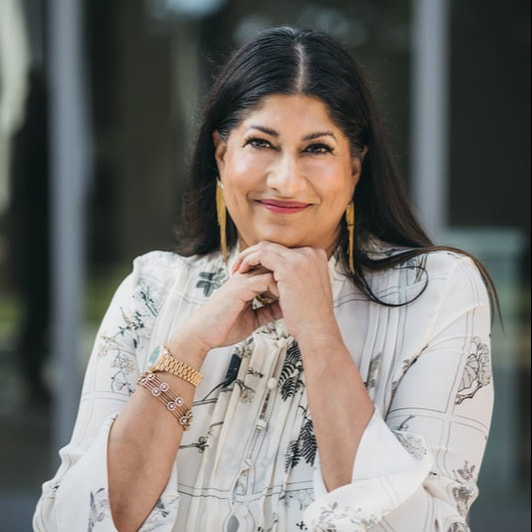|
Back to Blog
Indica News: Feature article10/27/2022 Let’s talk about domestic violence: Anita BhatiaDomestic violence is embarrassing because in many cases you feel you are an intelligent woman and how could this happen to you and you choose not to share that information with anyone, so the first step to healing is actually to be open and be honest to speak up, says Anita Bhatia, executive director, of Ramesh & Kalpana Bhatia Family Foundation, who earlier this month, made a $3 million grant to Sakhi, the second oldest South Asian gender-justice organization in the United States.
Bhatia was one of the speakers at the Indiaspora 10th anniversary gala. She spoke to indica on the sidelines of the conference held at Hayes Mansion San Jose, Curio Collection by Hilton in San Jose, California. Bhatia, supporting Sakhi, said, “The reason is, I have experienced violence myself in a relationship, and I have also experienced violence at home. The one our community doesn’t talk about. So, I am here to talk about emotion, feelings, and how we communicate with each other.” On donating funds to Sakhi, Bhatia said that Kavita Mehra, Executive Director of Sakhi for South Asian Women, is a friend of hers for many years and that she [Mehra] had invited her to a Sakhi gala in New York. “I was moved by the survivors who spoke out in 2018, and that time I made a personal donation,” Bhatia said. She asked Mehra what they are doing for youth survivors, and that she would like to support them because she learned Sakhi had a support system for domestic violence victims’ mothers, but no specific program for the youth. It was then she asked Mehra to submit the proposal because “we wanted to serve a youth survivor.” Bhatia said that when you are an adult and you are experiencing trauma you hopefully have a good foundational base, so to get out of that trauma is very difficult. When a child experiences trauma, its brain is still forming and the child’s idea of how a relationship exists is seen then. When you see your father speaking to your mother in a certain way or hitting her, you think that is how life is. “I think education has to start from childhood,” Bhatia said. “And our culture, our family says it’s your problem. Don’t talk about it, because we don’t want to hear about it. You are on your own. You are married and you have to deal with it.” The number of domestic violence cases is rising, she said. “Covid was a very big factor because women are stuck at home with their abusers and unable to get out. In that situation, Sakhi has done a lot of work and provided rapid response to get to the survivors. Bhatia said that “domestic violence in our community is highly underreported and it is because culturally we are told not to speak about it.” Families are affected and it takes a lot of courage to speak out. She said she had a conversation on this with her mom [to speak about herself]. Asked what makes her strong and speaking fearlessly about this issue said that “god gave her the ability to be this strong since childhood.” She added, “I’m born this way.” Bhatia said it is difficult for Indian or south Asian women to talk about domestic violence but the only way to change this culture is to get people to talk about it. Bhatia has earned a Master’s Degree in Health Administration from the University of Southern California and graduated with a BA from the University of Texas, Austin. She currently serves on the UT Southwestern Medical Center President’s Advisory Board and Marketing Committee. Prior to joining the Foundation, Bhatia, who held senior leadership positions in healthcare developing and implementing marketing campaigns and business development strategies for major hospitals and healthcare systems, says being able to help people is her passion. Writer: Ritu Jha
0 Comments
Read More
Leave a Reply. |

